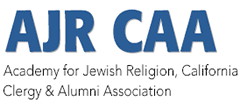Position: Rabbi & Spiritual Director
Rabbi Diane Elliot serves as a ritual leader, wisdom teacher, and spiritual director in San Francisco’s East Bay. Before studying for the rabbinate, she enjoyed a 25-year career as a dancer, choreographer, and somatic therapist. From 2007–2009 she served as spiritual leader of the Aquarian Minyan in Berkeley, California. As director of Wholly Present, a center for embodied Jewish spirituality, Rabbi Diane inspires her students to become clearer channels for Divine Flow through awareness and movement practices, chant, and nuanced interpretations of Jewish sacred text. She works with individuals in spiritual direction and somatic modalities and directs the ALEPH Alliance for Jewish Renewal’s “Embodying Spirit, En-spiriting Body” program, a two-year movement-based Jewish leadership training. To learn more about her work, visit www.whollypresent.orgor www.aleph.org
Specializations
- Dedications & New Home Blessings
- Spiritual Counseling/Spiritual Direction
- Teaching/Education
- Visiting the Sick/Bikkur Cholim
- Weddings
- Writing/Editing
Other Specializations:
Embodied Judaism (including movement, body awareness, and body-based study of traditional texts), Retreat creation and facilitation, Jewish meditation
Thesis Title:
L’SHEM YIKHUD: JEWISH WEDDING AS A GATEWAY TO SPIRITUAL PRACTICE (2006)
Abstract:
This paper presents three models of Jewish wedding, which can be seen to be interwoven in the traditional Jewish wedding ceremony (huppah) and are currently being extended and renewed. These are 1) the rabbinic template of kinyan/kiddushin (betrothal/sanctification), based upon Torah motifs of creation; 2) the brit ahuvim or covenant of lovers, deriving from the Song of Songs and embodied in the nissuin/sheva brakhot; and 3) a mystical model of marriage, named here as brit binyata, or covenant of braiding, implicit in the other models and extending beyond the huppah into the yikhud (seclusion of wedding partners immediately after the huppah), dancing, and wedding party. With extensive footnotes rooting Jewish wedding traditions in textual sources and an appendix containing suggestions for renewing these wedding rituals, L’Shem Yikhud is intended as a resource for wedding officiants and couples preparing for marriage, who wish to deepen their understanding of Jewish wedding as a transformative process, prefiguring a shared life in which the relationship itself serves as a mishkan, a vehicle for Holy Presence, and the home becomes a temple in which ongoing spiritual practice unfolds.
Email: rabbi.diane18@gmail.com


